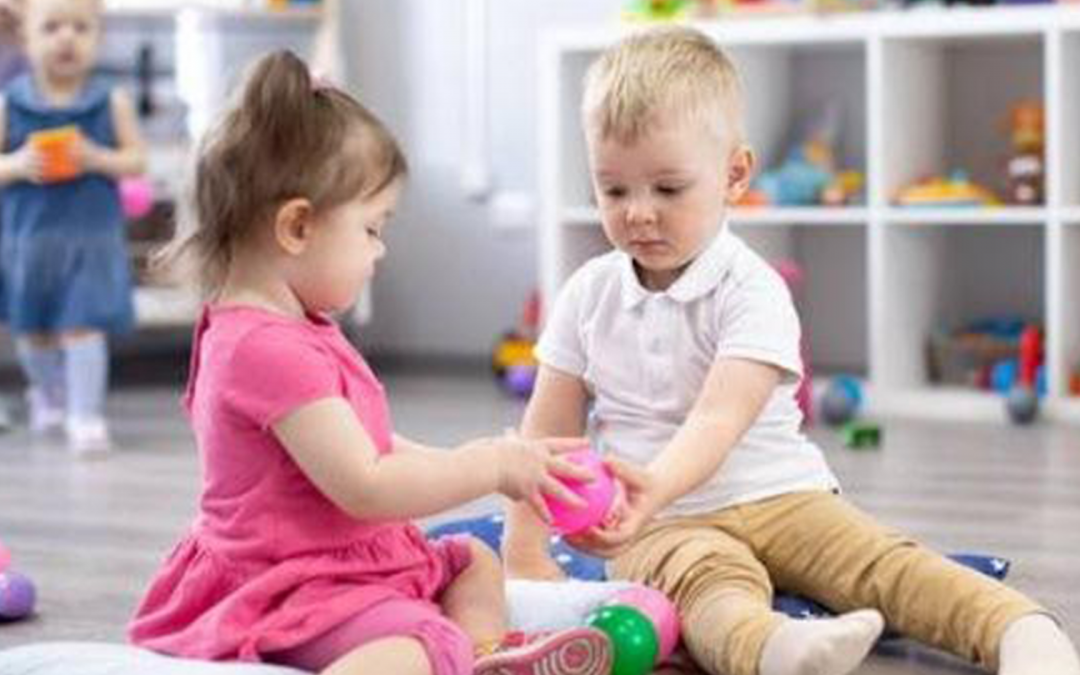Preschoolers are learning to talk about their feelings and the feelings of others. Social-emotional development, however, involves more than just expressing emotions. It includes taking turns, becoming independent in following routines, interacting more with peers, engaging in meaningful relationships with others, controlling emotions, and developing a positive self-image. These skills are crucial for children’s successful participation in school and home experiences that influence their success in school and in life.
2 years old
- Shows a wide variety of emotions
- Dramatizes using a doll
- Looks at people when speaking to them
- Can be shy with strangers and in outside situations
- Engages in parallel play next to peers
- Shows independence
3 Years Old
- Demonstrates awareness of class routines
- Plays with another child
- Responds to and makes greetings
- Beginning to take turns
- Interacts appropriately with others during group activities
- Plays interactive games like Ring around the Rosie, Hide & Seek
4 Years Old
- Talks about own feelings
- Participates in cooperative play
- Plays simple game according to rules
- Comforts playmates in distress
- Quiets down after active period and waits for instructions
- Learning to verbalize feelings before physical expression
- Offers item or activity to another in exchange for item or activity
5 Years Old
- Offers assistance to others
- Remains in designated play areas
- Accepts an altered routine when requested
- Tries out new activities
- Plays group games following rules
- Remains calm when small requests are denied
Talk about Feelings
Strong social-emotional development is an important foundation for success later in life. You can support your child by labelling emotions, both yours and your child’s. “You look sad that there are no more cookies. That would make me feel sad too.” This helps your child learn about their feelings, and also starts to teach your child that other people have feelings too.
Set Boundaries
Children benefit from strong boundaries. “It is okay to be angry, but it is not okay to hit someone when you are angry.” Then when things are calm, help your child problem solve what they should do the next time they are angry.
Practice Self-Control Games
Did you ever play Red Light, Green Light or Freeze Dance as a child? Turns out that games like that can help teach a child self control. Make it more challenging by switching up the rules every so often.


Recent Comments